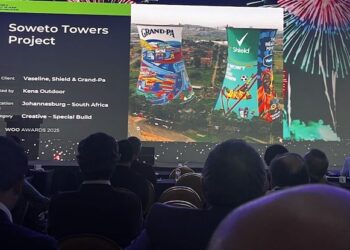The core purpose of any commercial radio establishment is to create profit for their investors through radio sales. Marketers advertise on radio with a particular return on investment in mind, and which is the main reason why they either continue to invest in that radio station or not. The key to any successful radio marketing campaign is to ensure you market your client’s products to the right audience, using the right language, which they can relate to and a product that your audience can afford and will be keen to buy.
Most successful commercial radio stations invest a lot of resources into audience research, whether it be listener association boards, psychographic analysis of their audience and more, all in the effort to understand their audience and make sure they cater for their growing needs and that they are attracting the correct target market. In South Africa, the main research body entrusted to do audience research is Saarf (South African Advertising and Research Foundation) via its Radio Audience Measurement Survey (Rams).
Saarf has solely handled all major audience research for the longest time for all the radio stations in South Africa but this will come to an end soon. Many in the South Africa radio industry have expressed deep dissatisfaction in the overall measurement methodologies as well as what they refer to as “changing” samples used by Saarf during field research which has led to some radio stations showing a major decline in the audience figures. This has ultimately led to many in the radio sector being of the view that it may be time to form a new radio audience research body.
Amongst the reasons why the sector wants to pull out of Saarf is that there is no monthly tracking research done and that methodologies are out of touch with what’s actually taking place in the industry.
Saarf makes use of the diary method of conducting research, a method used by most countries around the world. A diary is simply given to an individual for a week, to document, in 15 minute segments, which radio stations they were listening to at any given time. The problem with this method of course is that the sample is small and that it’s only measured for a week – leaving out 11 weeks that could possibly display varying listening patterns as field work is only done once every three months.
There are other research options available like sampling diaries online as opposed to literally writing it down. The advantage of this is that you can obtain a larger sample and possibly more frequently and maybe even investigate their listening patterns in more detail. WARC research shows that when comparing the diary method with the online diary method, smaller radio stations increased their share of overall listening at the expense of larger stations, while less popular day time slots increased in importance versus your typical prime time peak slots.
The other method is the ‘telephone after recall’ method. This method is more popular than the online diary one, with about 23 European countries making use of it. People are asked to remember what they listened to on the previous day. The latter method has proved to be more reliable than the diary method, as the risk with the diary method is the participant can wait days before completing the diary whilst with the telephone method ,the memory is still fresh.
Side by side comparison between the telephone method and diary method done in France show that there isn’t too much of a gap between the numbers of listeners generated by both but that the diary method tends to generate higher listening claims. The reason why diary listenership tends to be inflated could be due to the fact that a participant could possibly only remember the bigger radio stations they generally listen to and may forget the odd ones they sometimes listen to as well.
There is also a strong development in the digital audience measurement practice used also in the United States where a particular radio station website code is embedded in smartphone software or on a PC. New measurement developments seem to be moving towards electronic measurements through various audio digital devices which can pick up sound in various places, minute-by-minute, which would, for example, show what the participant is listening to at work, in a friend’s car, at a shopping centre etc. The process is being led by Ipsos.
The jury is out on what is going to happen next. It is clear radio, as part of the broadcasting sector, will form a new body for audience research as the National Association of Broadcasters has shortlisted a group of companies to take on the task of creating a new measurement survey. They are Ask Afrika, GfK, Ipsos, ACNielsen and TNS Research Surveys. a
We still have to find out what will the new methodologies will entail and what it will mean for the radio industry. Considering some of the research points above one can conclude that the diary method or at least the way that its currently been done may possibly not be the best research practice for radio especially with the amount of pressure for commercial radio to ensure that they have built an audience size and target market worth selling to advertisers.
Whatever takes place, the marketing industry wants stable and credible research in order to base their marketing and advertising decisions and radio cannot afford to have questionable audience research figures.
Kabelo Mekoa is a media intern.














